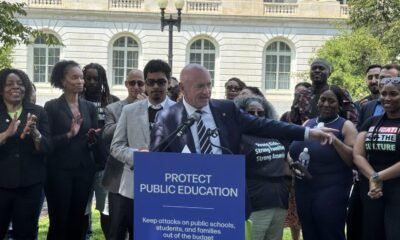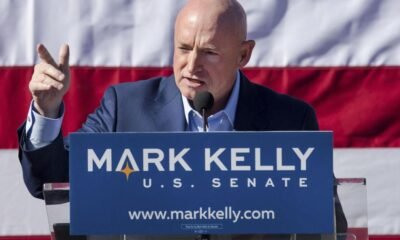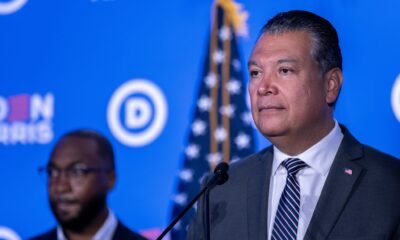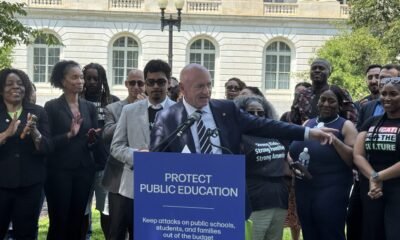Brown University
Senator Kelly Stands Firm in Defense of Deported Foreign Terrorism Advocate

By Staff Reporter |
Senator Mark Kelly has publicly defended Dr. Rasha Alawieh, a Lebanese kidney transplant specialist recently deported by the Trump administration. During a town hall meeting on Monday, Kelly referred to Alawieh as a “talented transplant doctor” and a “lawful H1B visa holder.” However, he did not mention that her deportation stemmed from her admission of support for terrorist leader Hassan Nasrallah.
Kelly criticized the circumstances surrounding Alawieh’s deportation, claiming it lacked justification. “She was tossed out of the country because she visited some relatives in, I think, Lebanon. Thrown out without cause, without due process,” he stated, emphasizing perceived failures in the administration’s adherence to legal protocols.
The Department of Homeland Security clarified that Alawieh’s deportation was due to her expressed support for Nasrallah during an interaction with Customs and Border Protection officers. The DHS emphasized that supporting individuals who engage in terrorism is sufficient grounds for visa denial. “A visa is a privilege not a right,” the department stated, highlighting the importance of national security.
Legal documents revealed Alawieh had photos supportive of Nasrallah and Iran’s leader, Ayatollah Ali Khamenei, on her phone. Alawieh’s legal counsel recently withdrew from her case, indicating their decision was based on a need for “further diligence.” Prosecutors noted Alawieh characterized Nasrallah as a respected religious leader within the Shia community, separating his religious teachings from his political actions.
Kelly made these remarks alongside fellow Senator Ruben Gallego as part of a broader campaign to critique the House Republican-led budget, which they argue threatens Medicaid. The proposed budget, seeking to reduce spending by $880 billion, has been met with strong opposition from Democratic leaders. House Minority Leader Hakeem Jeffries labeled it the “largest cut to Medicaid in American history,” based on the committee’s oversight responsibilities for Medicaid funding.
Republicans countered that the budget proposal does not specifically target Medicaid, despite concerns voiced by Democrats. While Kelly acknowledged that mass cancellations of Medicaid had not yet occurred, he warned of a significant likelihood of such actions. He expressed concern that the Trump administration’s fiscal policies primarily benefit wealthier individuals at the expense of necessary social services.
“All of this stuff you’re hearing every single day is so they give a big giant tax cut to people who don’t need a tax cut,” Kelly remarked, advocating for increased taxes on the wealthy as a solution to rising health care costs.
Kelly predicted adverse effects on public health should Medicaid and Medicare face severe funding cuts, suggesting that individuals may resort to emergency services as their principal route to health care. Gallego echoed Kelly’s concern, stating, “You will see these emergency rooms become the primary care doctors.”
Both senators emphasized that proactive measures could prevent the negative implications of such budget cuts. Kelly proposed expanding access to health care programs as a vital step to protect vulnerable populations.
In Arizona, approximately 780,000 residents are enrolled in Medicare, with an additional 483,000 on prescription drug plans. The senators stressed the necessity of maintaining support for these programs, as diminished Medicaid funding could undermine overall health services.
Gallego cautioned that cuts could particularly impact working families, especially those above the federal poverty line but still within eligibility for Arizona’s Medicaid program. He and Kelly called for an organized grassroots effort to oppose the proffered budget changes driven by the Trump administration.


















